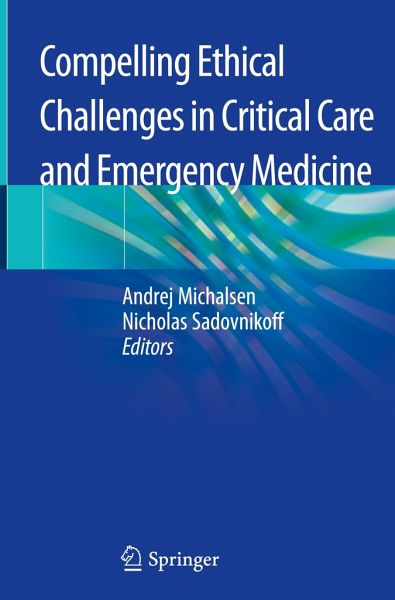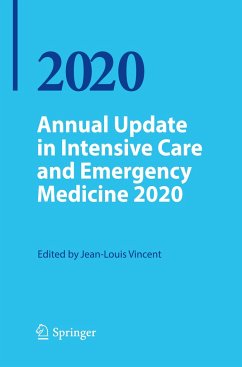
Compelling Ethical Challenges in Critical Care and Emergency Medicine

PAYBACK Punkte
49 °P sammeln!
This book addresses the ethical problems that physicians have to face every day while caring for critically ill patients. Advances in medical technology, ageing societies worldwide, and their increased demands on health care systems have, on the one hand, led to better care and remarkable longevity in many parts of the world. On the other hand, however, improved treatments in many medical fields, amongst others in emergency and critical care, have resulted in more patients surviving with reduced quality of life. This entails tradeoffs for many patients, their families, and the teams caring for...
This book addresses the ethical problems that physicians have to face every day while caring for critically ill patients. Advances in medical technology, ageing societies worldwide, and their increased demands on health care systems have, on the one hand, led to better care and remarkable longevity in many parts of the world. On the other hand, however, improved treatments in many medical fields, amongst others in emergency and critical care, have resulted in more patients surviving with reduced quality of life. This entails tradeoffs for many patients, their families, and the teams caring for them. At the same time, health care expenditures have risen dramatically and have to be balanced against costs for other public goods. Finally, the humane aspects of care have often failed to keep pace with the remarkable technological strides made in recent years.
In this book, experts in their respective fields describe compelling ethical challenges resulting from these discrepancies and discuss potential solutions. The book is primarily intended for clinicians who care for two of the most vulnerable patient subpopulations - those being treated in ambulances or emergency rooms, and those being treated at intensive care units - due in part to the fact that they may be temporarily or permanently incapacitated. Core medical skills, such as diagnosis and predicting outcomes, as well as implementing treatment, remain challenging. However, without adequate communication and collaboration both within the inter-professional treatment teams and between the teams and the patients/their families, delivering excellent care is difficult at best. Therefore, the so-called "soft skills" are given the attention they deserve in order to overcome the gap between technological progress and interpersonal standstill.
In this book, experts in their respective fields describe compelling ethical challenges resulting from these discrepancies and discuss potential solutions. The book is primarily intended for clinicians who care for two of the most vulnerable patient subpopulations - those being treated in ambulances or emergency rooms, and those being treated at intensive care units - due in part to the fact that they may be temporarily or permanently incapacitated. Core medical skills, such as diagnosis and predicting outcomes, as well as implementing treatment, remain challenging. However, without adequate communication and collaboration both within the inter-professional treatment teams and between the teams and the patients/their families, delivering excellent care is difficult at best. Therefore, the so-called "soft skills" are given the attention they deserve in order to overcome the gap between technological progress and interpersonal standstill.












